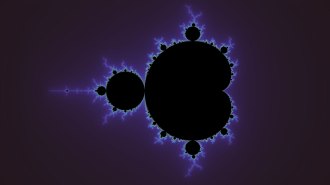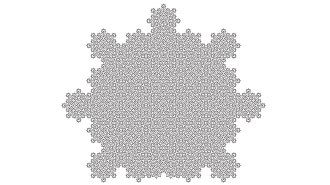In 1644, French cleric and mathematician Marin Mersenne (1588–1648) proposed that the numbers 2n – 1 are prime for the values n = 2, 3, 5, 7, 13, 17, 19, 31, 67, 127, and 257, and they are composite for all other positive integers greater than 257. A prime is a whole number evenly divisible only by itself and 1.
Mersenne was certainly correct about the smaller numbers. For example, when n = 7, (27 – 1) = 127, which is a prime number. However, Mersenne could not have tested all the candidates. It turns out that he was wrong about two of them (for n = 67 and 257, the numbers are composite) and also missed a few (for n = 61, 89, and 107, the numbers are prime).
Nonetheless, it’s Mersenne’s name that’s now associated with numbers of the form 2n – 1. And the Great Internet Mersenne Prime Search (GIMPS) continues to unearth new Mersenne primes.
The latest entry—the 41st known Mersenne prime—was discovered last month: 224,036,583 – 1.
Written out in the full, the number consists of 7,235,733 decimal digits or, in binary notation, an unbroken string of 24,036,583 1s. It’s now the largest known prime number.
Its discoverer is GIMPS participant Josh Findley, who used his home computer and software provided by George Woltman and Scott Kurowski to find the enormous prime. Findley’s computer is one of more than 240,000 computers worldwide engaged in testing Mersenne numbers for primality. GIMPS volunteers are responsible for checking Mersenne numbers within specified ranges of exponents, whenever their computers would otherwise be idle.
The new champion prime greatly surpasses the previous record holder, 220,996,011 – 1, which has 6,320,430 decimal digits.
The latest find suggests that the first 10-million-digit prime may be within reach. Its discovery would net a prize of $100,000 from the Electronic Frontier Foundation.
GIMPS volunteers haven’t yet tested every Mersenne number smaller than the current champion, so another Mersenne prime may yet lurk among the untested numbers. Only exponents less than 12,441,900 have all been tested at least once.
There’s still a lot more testing to do!






